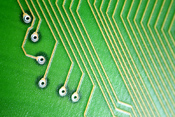Protection from malware and spyware

There are many threats to our computers out there. From those annoying pop-up messages on websites to viruses that can infiltrate our systems at any time, malware and spyware are everywhere and they can cause you to lose your identity and all of your credit card and debit information. Protecting yourself is vital to your computer system in order to avoid identity theft and other scares that can arise. There are many websites that have messages that will pop-up and to say things like "install this program" and other things like "to run this website you need to install this program." Be very careful with these messages as they are very dangerous to your system and they are signs of malware and spyware.
Using identity theft protection
 Protecting your identity is one of the most-important things you can do. Identity theft is ramped and a thief will steal your identity in a matter of seconds. To protect yourself, many online companies are offering identity theft protection. Most credit card companies offer identity theft protection and they will alert you the second there is questionable activity on your account. Even with the credit card monitoring services, it is a wise decision to invest in identity theft protection. Theft protection will protect from different types of scams and they will help you recoup the money that was lost to fraudulent activity.
Protecting your identity is one of the most-important things you can do. Identity theft is ramped and a thief will steal your identity in a matter of seconds. To protect yourself, many online companies are offering identity theft protection. Most credit card companies offer identity theft protection and they will alert you the second there is questionable activity on your account. Even with the credit card monitoring services, it is a wise decision to invest in identity theft protection. Theft protection will protect from different types of scams and they will help you recoup the money that was lost to fraudulent activity.
Speeding up your computer
 Dealing with a slow computer can impact your business activities along with other things like your day-to-day internet browsing and saving some of your valuable files like pictures. If you have ever dealt with system freezes or those annoying messages that report errors when a program freezes, it is time to clean up your computer and make it run faster.
Dealing with a slow computer can impact your business activities along with other things like your day-to-day internet browsing and saving some of your valuable files like pictures. If you have ever dealt with system freezes or those annoying messages that report errors when a program freezes, it is time to clean up your computer and make it run faster.
Wireless network protection
 Companies must be careful when they set up a wireless network because without proper protection, anyone can hack into it and compromise valuable information. There are several devices like laptops that detect wireless signals and they will automatically connect to them. A single Wi-Fi hub will transmit at a range of 300 feet. Here are a few reasons why you need to secure your wireless protection:
Companies must be careful when they set up a wireless network because without proper protection, anyone can hack into it and compromise valuable information. There are several devices like laptops that detect wireless signals and they will automatically connect to them. A single Wi-Fi hub will transmit at a range of 300 feet. Here are a few reasons why you need to secure your wireless protection:
How to protect yourself online
 Online security threats are enough to scare anyone from accessing their bank account information and from transmitting any personal information over the internet. Browsing the internet doesn't need to be a scary thing, it should be safe and secure for anyone. If you are worried about your personal information being compromised, here are some tips that may help you stay protected:
Online security threats are enough to scare anyone from accessing their bank account information and from transmitting any personal information over the internet. Browsing the internet doesn't need to be a scary thing, it should be safe and secure for anyone. If you are worried about your personal information being compromised, here are some tips that may help you stay protected:
The dangers of viruses and the technology to protect yourself

Viruses, spyware and identity theft are some of the worst dangers you can face or come across when you use the internet. A computer virus is a malicious program that can invade and infest computer systems and perform different types of activities from annoying to critical. Viruses can be present as a simple annoying function like a pop up ad to a more serious and dangerous function like deleting files and destroying your hard disk.
Computer viruses are programs that must be triggered before they can infect your computer system and start spreading. Viruses can be spread by sharing infected files on a diskette or over the network drive. By exchanging infected files over the internet via email attachments or by downloading questionable files from the internet can help the virus to spread fast throughout the world.
As more and more people have access to the internet, viruses are also growing and spreading
from one computer to another everywhere on planet earth. The internet ability to provide immediate information is incomparable to any other method of file transmission. Unfortunately, many malicious individuals prowl the internet waiting to take advantage of some people who are naïve or careless. They are looking for information or to harm what's on your computer by deleting files or destroying your hard disk. This doesn't mean that you should avoid using the internet all together. You certainly need to be concerned while being online and protect yourself by paying extra close attention to questionable emails or files from the internet before opening them.
Scanning for viruses and spyware

If you use a computer, chances are you know of the dangers of viruses and spyware. The effects of viruses and spyware vary. They can be fairly harmless, such as hacking into your Microsoft Outlook contacts and sending spam to those on your email lists. Other times, it can be much more serious, deleting files and crashing your hard drive.
Scanning for viruses and spyware
One way you can protect your computer from viruses and spyware is through anti-virus software. Computer viruses circulate often and can be picked up in the form of a seemingly-harmless email or through other means. Damage from viruses varies. They can cause little damage or completely erase your hard drive and everything on it. Anti-virus software recognizes these threats and protects your computer from being harmed. Many anti-virus software also includes protection against spyware, which tracks what sites you visit.
What is svchost and what should I do about it?

If you are puzzled about why there are nearly a dozen processes running with the name svchost.exe. and what you should do about them this article is for you.You may be surprised to see all of these processes running and even more frustrated when you realize you can't kill them, and you don't remember starting them. This leaves the question-What is svchost and what should I do about it? According to Microsoft the definition is: "svchost.exe is a generic host process name for services that run from dynamic-link libraries".In simpler terms-Microsoft started moving all of the functionality from internal Windows services into .dll files instead of .exe files. From only a programming perspective this makes more sense for reusability but the problem arose that you cannot launch a .dll file directly from Windows.The program has to be loaded up from a running executable (.exe). Thus the svchost.exe process was born.
But this still does not explain why there are so many svchost.exes running.But if you have ever taken a look at the Services section in the control panel you might notice that there are a lot of services required by Windows. If every single service that was needed ran under a single svchost.exe instance, a failure in one might bring down all of Windows.So because of this they are separated out.The services are organized into logical groups, and then a single svchost.exe instance is created for each group. For instance, one svchost.exe instance runs the 3 services that are related to the firewall and then another svchost.exe instance might run all the services related to the user interface etc.
Continue reading "What is svchost and what should I do about it?"